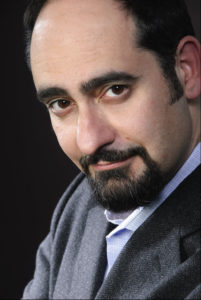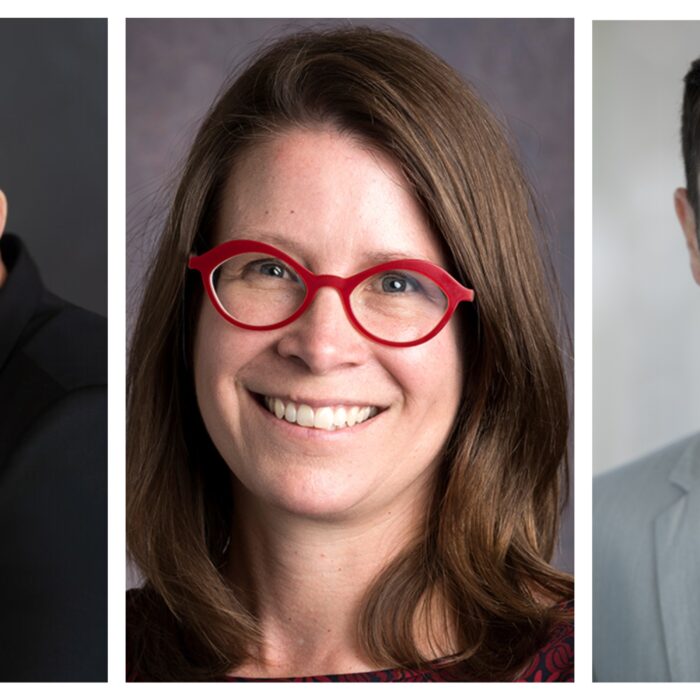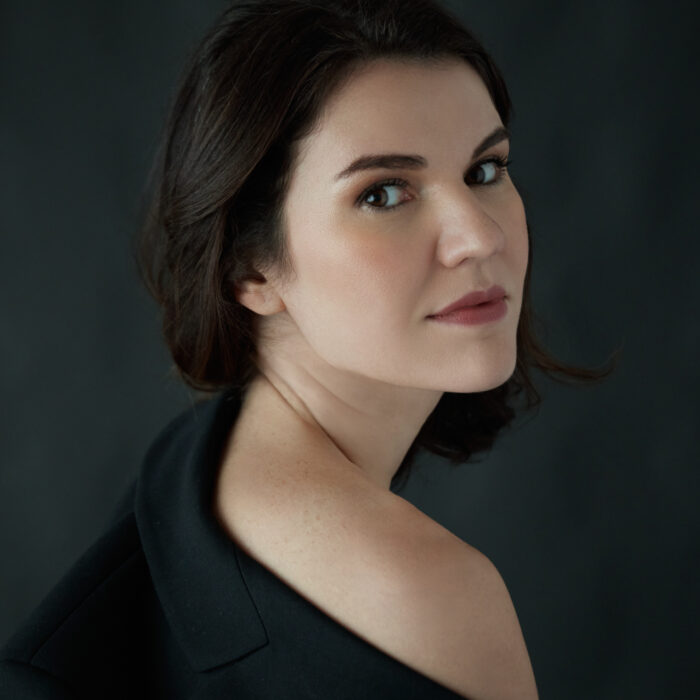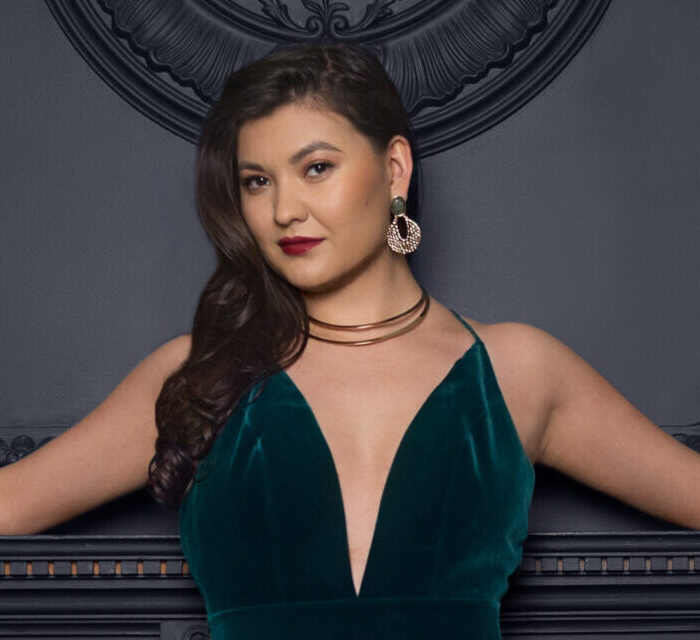
Q & A: Opera on the James General Director Marco Nisticò On His Multi-Faceted Career
By Chris RuelOpera on the James, located in Lynchburg, Virginia named singer, director, and teacher, Marco Nisticò General Director this past June.
Nisticò summed up his mission on the company’s website, saying, “[Opera] has the capacity to move, inspire, provoke thought, and entertain. It helps us to understand who we are and how we relate to each other. As director of Opera on the James, it is my mission and pleasure to present this art form in a way that is open, radiant, and dedicated to the highest musical and theatrical values.”
Nisticò is an Italian-born bass-baritone who studied theater in France, but as an Italian, his heart belongs to his home country and its rich repertoire. He is a fan of Verdi and Donizetti, initially playing comic characters before moving into dramatic roles, singing Germont in “La traviata” at the Sarasota Opera and the Savannah VOICE Festival; Ping in “Turandot” with the San Diego Opera; and Ford in “Falstaff” with Opera Colorado during the 2017-2018 season. In 2018-2019 he directed “Tosca” for Opera Southwest before returning to the Sarasota Opera to sing Gaspar in Donizetti’s Rita. His Metropolitan Opera roles include the premiere of Nico Mulhy’s “Two Boys,” and he returned to the Met for “Carmen” and “La traviata.” Nisticò has quite a resumé as a singer.
With such a strong background in performance, Nisticò brings a unique perspective to his teaching, directing, and his goals as an administrator. He gets what it means to be a singer—the highs and lows, the demands, the lack of control over aspects of the production, and he makes sure those who join the company’s roster feel valued and respected as artists, especially younger singers. When speaking with OperaWire, Nisticò’s passion for developing young artists was abundantly clear.
In this wide-ranging interview, Nisticò talked about his beginnings in opera in Italy, how being a native Italian speaker influences his interpretation of the great Italian composers, and his goals as the General Director of Opera on the James.
OperaWire: Let’s start by talking about your career path. You have done so many things within the industry from singing to teaching to stage directing, and now, you’re the General Director at Opera on the James.
Marco Nisticò: I have not had a common path. I’m from southern Italy, and I grew up in a family where my dad was a voice teacher—he was a singer and then became a voice teacher until he retired. So, the last thing I wanted to do was singing, possibly because of that. I kind of refused for many years.
I went to Paris to study theater and history of theater. At some point at school in Paris, we were organizing a little show, and I asked my father to help me, vocally, so I could sing better because there were songs involved. Shortly thereafter, I was auditioning here and there, locally, in Italy and I got hired. This was late in my life, in my late 20s.
I started doing little choirs, and then little parts. At some point, they hired me to do a small role at a festival in southern Italy. Somebody there saw me, and they asked me to sing in Monte Carlo.
I met my current wife in Italy, and we decided that a good place to live was in New York, especially for her; she’s a dance critic. A year after I moved to New York, the New York City Opera hired me when it was a big repertory company, and I was there for four seasons. That’s where I got all my connections that led me to have a career mostly in the United States. Plus, I had connections in Europe that I had made before moving to the United States; so, I did some back and forth for a while.
I found myself in the midst of a career that I wasn’t expecting. I never went to music school. I wanted to do things that were rewarding for me. And, of course, the New York City Opera was great because I was in New York at Lincoln Center, you know, the center of the world, right next door to the Met. I ended up doing some things at the Met, but that was later—much later.
OW: So, it sounds as though becoming a singer/actor was a bit of a happy accident.
MN: Yes, that’s fair to say. I wanted to do something that was satisfying and from which I could make a living. I was fortunate. I have a relationship with the Sarasota Opera where, since 2008, I’ve been going every year. It’s where I’ve sung some of the most rewarding roles.
OW: What are some of those roles?
MN: I essentially do two things: comedy and serious. The serious, dramatic roles really started happening in Sarasota. My first Verdi role was Foscari, the old doge in “I Due Foscari.” That was a highly satisfying role, and so was Posa [Rodrigue] in “Don Carlos.” Those were, when we’re talking about dramatic roles, definitely the most satisfying; but, I’ve also sung a lot of Figaro in “Barber of Seville,” and Dulcamara in “L’Elisir d’amore,” which I find equally satisfying. In “Barber,” I’d rather do Bartolo these days; I identify a lot more with the grumpy old man. As you can tell, I sing mostly Italian opera, being Italian myself.
OW: Let’s dive into that—being Italian and singing in your native tongue. Do you feel you have an advantage in how you interpret the music and the text?
MN: I think as a native speaker, you don’t have the barrier of translation. You’re directly connected to the text, having the same connection that the composer had with the text, and you get why and how the composer put that music on that text. We’re talking about the good composers—the real ones, the ones who got the text and then composed music based on the poetry.
As a native, you get it. When, if I sing Donizetti or Verdi, I understand why it is written the way it is, and that opens up a lot of possibilities for different interpretations. The more directly connected you are to the text and music, the easier it is for you to make choices. You know how to use the tone and the different nuances of your voice to express the text.
Young, American singers, especially now, are expected to learn to sing anything in any language which is a bit too much of an expectation. When I teach younger singers, of course, I give them all the diction and correct the vowels and consonants, some of those things that happen all the time, that’s all technical stuff; but, I also try to give people an idea of the direction of the phrase and the actual phrasing of it.
What people should try to do is find a repertoire that speaks to them, to the core of themselves and that they feel a direct connection to and then try to go as in-depth as possible with that. If you like Italian opera, then try to learn as much as possible about Italian culture and the language. There are people who are extraordinary at doing that as American singers.
The first one I met personally and found to be very impressive because of his ability to connect with the text and to express it with his incredible voice was Larry Brownlee. He is somebody who is incredibly curious about other cultures and other languages. He was learning Italian, and he had a sense of it. So, it’s a very special thing that many people don’t care to work on; however, the good thing about the American industry now is that there is a lot of American opera being composed in English. That’s really great to see as American singers feel really at home in that repertoire and it opens a lot of opportunities and possibilities for young Americans.
OW: That makes sense, and it leads me to wonder if singers want to differentiate themselves, should they specialize in a particular repertoire?
MN: Yes, absolutely! It makes you special. You know, throughout the whole golden age of opera, until I want to say the 1980s, people would specialize. There were a lot of American singers who were really specialized in Italian opera. You can have an accent, and an accent is okay… we all have accents.
More importantly, you need to understand deeply what you’re saying and why that choice of words, or that connection between words and music was made by the composer and the librettist. There were many people in this country who had the ability and the training, but that training has been lost a bit these days. There’s a lot of diction and not enough language.
OW: After having done many things—singing, teaching, directing, and working at opera companies big and small—how was it you landed at Opera on the James?
MN: Landing here was interesting. I was ready to make a transition into something other than singing. Teaching was one thing and directing another. But I saw the posting on the Opera America website, and I applied. I didn’t know anyone, but I liked the idea of a company based in a relatively small community and a place where people really want an opera company to work. Opera on the James had a certain reputation from people who had been here. Everybody was enthusiastic about the place, the company, and the way things worked.
I was in Sarasota when they invited me to come to Lynchburg for a few days to interview and see a show. I connected with them, having a good time with the search committee and the board. The show I saw was at the venue we are using now, the Academy Center for the Arts in the historic theater. They have more than one stage in that venue, and the production I saw was on the big stage that had just been renewed. It looks incredible. What a great privilege it is to have such a theater. It’s so beautiful, the acoustics are great, and it’s a perfect size—about 500 seats. You can do almost any kind of opera and there’s a lot of technology because of the renewal. The company is lucky to have this venue.
I really did not hesitate in taking the job because I felt like Opera on the James was a good place for me to follow my ideas of what it is to produce opera and to provide the opportunity for younger singers to have a professional experience guided by me and other people with strong backgrounds in the business. It’s good to sing a lead role for the first time in a lovely place such as this. Plus, you have the constant participation from patrons and board members that love getting to know the artists. It’s a special connection that many times you don’t have at the larger companies.
OW: What’s your primary goal as General Director?
MN: My mandate is to follow the vision of the company, and that vision is to offer high-quality opera in Central Virginia and its communities. Like all companies, we have to do it with the budget we have. It’s kind of simple in that sense. With all the experience I have accumulated in my career, I know a lot of people and artists that can, in fact, offer high-quality opera and an artistic experience to the region.
So, my point is to find out what the community would like and then, from all the connections I have, get the best here. I also think there is an education side to every arts organization.
OW: Let’s talk about that. How does Opera on the James engage in education?
MN: The education side is two-fold: one is educating the local people, especially children. We have a young artist program, bringing younger singers here and educating them with coaching and training; but, also, we educate school children, bringing our shows to schools.
I would like to create a youth opera program where local children get training in everything that is opera, from voice to music to set building and makeup and acting—all of that. This will take a little while because I’m just starting. We need to devise the project, make a budget, and get the money, but that’s one of my goals here.
There’s also the goal of educating the audience, building on the high-quality Opera on the James offers and showing people what we can do. This includes changing the repertoire, not only giving them the canon, which I am very attached to because that’s what I’ve been doing all my life, but also new works. There hasn’t been a lot of new works produced here in Lynchburg. In fact, I would like to bring new American opera here because I think people will connect, both the audience and the artists.
OW: In what direction do you see the industry moving?
MN: I’m optimistic. There’s a lot of talk about the identity of the art form. There are all kinds of people who have different ideas as to what opera is, but I think we can offer good art to anyone. We can do the canon. We can do new works. There are some requirements, as far as I’m concerned with opera. One such core requirement is keeping the quality of the power of the human voice. We are the guardians of that. The musical quality is the most important thing through which we present drama.
The most powerful way to do it is unamplified—no microphones. There is something magical about the unamplified human voice. That is something I’d like to keep as much as we can. Opera is many things; it’s drama and music, and I think there’s room for everyone. Do I personally have to like everything? Not necessarily, but I can decide the quality I want to keep.
So, the industry, I think, is moving in a good direction. There’s a lot of debate. There’s a lot of talk about where we want to go, which is good. It’s always been like that. Opera elicits passions. People have always been discussing and fighting about it. One of the big things these days is that there’s a lot more inclusion which is also something I want to continue working on, not only on stage but on the administration side. I think that’s very important.
OW: What are you most looking forward to this coming year?
MN: Our next show is “Barber of Seville.” It’s my first big show as the General Director and most of the cast I hired myself. A lot of it is my work, though this isn’t my season; the season was decided before me, but this “Barber” is a bit like my baby. I’m very much looking forward to it because the people I have coming here to sing, and direct, and conduct are people that I trust. I’m sure it will be great.
Right now, I’m planning next season. I can’t yet say what we’ll have going on, that will be announced next spring when we’re doing our “Barber.” There’s a lot of collaboration with other people which is not always easy, but it is very rewarding.



